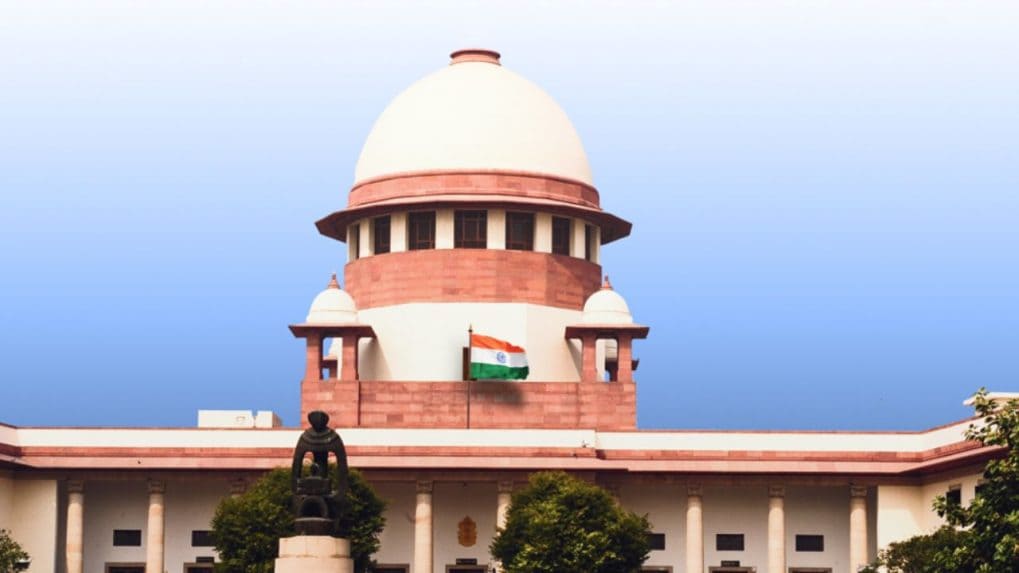Advertising
From Pink Slips to Silent Sidelining: Inside adland’s layoff and anxiety crisis

As the Supreme Court approaches the final hearings in the landmark GST case against online gaming operators, senior advocate Harish Salve, appearing for the E-Gaming Federation, accused the Union Government of misleading the Supreme Court by significantly altering the legal foundation on which it issued show cause notices (SCNs) to online gaming operators. The verdict is expected to bring clarity to a massive ₹2.5 lakh crore tax dispute, one of the largest in India’s legal history.
Appearing infront of a division bench of Supreme Court comprising Justices J.B. Pardiwala and R. Mahadevan, senior counsel Salve strongly contested the Union Government’s revised legal position on the taxation of online gaming, arguing that the creation of a “chance to win” does not constitute a supply of goods or services under GST law.
In his rejoinder submissions, Salve said the government had “significantly altered” the legal foundation of its show cause notices (SCNs) issued to gaming operators. He cited the SCN against Play Games 24×7, which acknowledged that player funds always remain the property of the player, that adding money to a gaming wallet is not a taxable supply, and that operators act merely as custodians of pooled money until distributing winnings.
Salve in his submissions stated, "The Petitioners would first like to point out that the Government has significantly altered the legal basis on which it seeks to sustain the Show Cause Notices (‘SCN’) issued to the Online Gaming Operators. Reliance is placed on an illustrative SCN dated 27 September 2023 issued to Play Games 24*7 Private Limited"
The government’s counter-affidavit and written submissions, however, now frame the issue differently — claiming that players acquire a “conditional right” to the winning amount, which is movable property, and that operators “create” this actionable claim, amounting to a taxable supply.
Salve called this formulation “plainly wrong,” stating there is no legal precedent that a participant in a game gains a property right over potential winnings before the game concludes. He distinguished the Supreme Court’s Sunrise Associates judgment on state-run lotteries, noting that the “grant” concept applied there is absent in private online gaming, where operators do not fund prizes or transfer any state-conferred rights.
Salve maintained that the relationship between operators and players is custodial, with funds in wallets remaining the players’ property, similar to escrow or bank deposits. He stated that the right to winnings arises only after the game ends and is, at most, a gambling debt, which is not an actionable claim enforceable by law. He emphasised that the GST rule cited by the government, Rule 31A(3), speaks of the “supply of actionable claim in the form of chance to win,” but does not equate the creation of such a chance with a supply.
He also argued that extending the concept of “supply” to include mere creation of rights would lead to absurd consequences. For example, it would imply taxing banks for creating debts in their favour when lending money, or taxing companies when shareholders gain rights under shares or debentures.
“The proposition that the creation of an actionable claim without any transfer still amounts to supply is without merit,” Salve told the court, adding that the government’s attempt to blur the distinction between player-to-player winnings and wallet balances misstates the legal nature of these transactions.
Salve stated, "It is absurd and without any merit to canvas the proposition that the creation of an actionable claim without a transfer (albeit of some form) would still amount to supply and attract the levy of GST."
He concluded that GST cannot be levied on such gaming transactions as structured, because there is no supply from operator to player, but only a distribution of funds held in trust among players themselves.
From purpose-driven work and narrative-rich brand films to AI-enabled ideas and creator-led collaborations, the awards reflect the full spectrum of modern creativity.
Read MoreLooking ahead to the close of 2025 and into 2026, Sorrell sees technology platforms as the clear winners. He described them as “nation states in their own right”, with market capitalisations that exceed the GDPs of many countries.